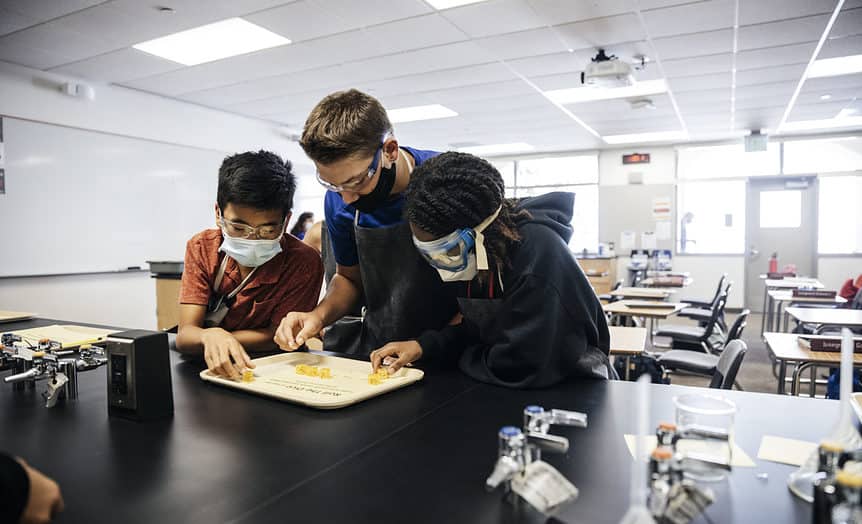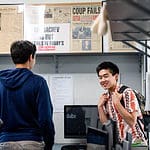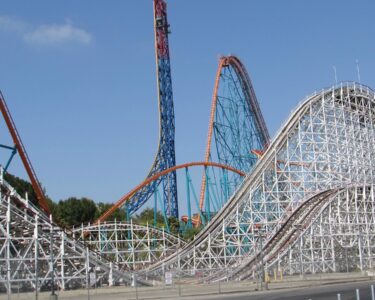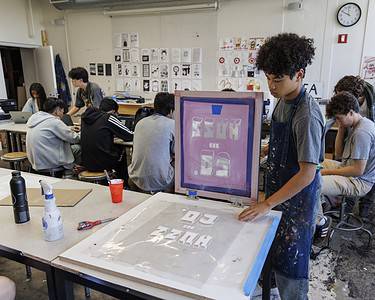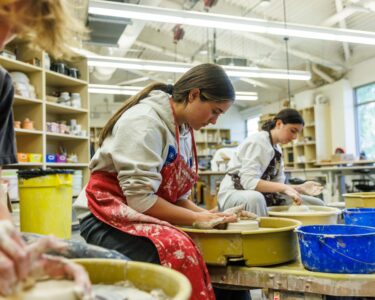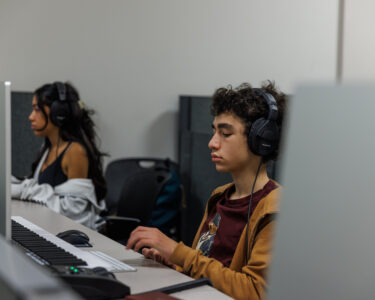By Lydia ’26
Hello, prospective 7th and 9th graders! My name is Lydia and I am a current 8th grader here at Harvard-Westlake. Today, I am going to be talking about what we do in 7th and 8th-grade science!
Integrated Science I is the 7th-grade science class here at Harvard-Westlake. All seventh graders take it no matter what level of skill set they have before coming to Harvard-Westlake. In this course, we learn about chemistry, but we touch on physics later on in the year. In science, we have worksheets, labs, and demos. The worksheets usually contain the material we learned in class. The labs are a lot more fun. The labs are when we get to perform experiments ourselves and write down our observations. After we write down our results, there will be around 3-5 analysis questions about the experiment. The demos are almost the same things as the labs, but usually, the teachers do the experiments themselves.
My favorite activity last year was the Whoosh Bottle Demo. My science teacher, Ms. Thompson, took a huge empty water bottle and put a clear liquid (methanol) inside of it. After she allowed the methanol to move around inside the bottle, she lit a match and dropped it into the bottle. When the match hit the bottom, the bottle made a huge WHOOSH sound. We all got so scared! We wrote down our observations of the experiment. There were a few analysis questions but other than that it was a fun experience!
Integrated Science II is the 8th-grade science class here at Harvard-Westlake. We learn Physics. So far, we have covered 2 units: Introduction to Energy and Electrical Energy. Now, the unit that we are on is Heat energy. Some concepts we have covered include the formula to find the change in heat, celsius to kelvin, and the three heat transfers (conduction, convection, and radiation). My favorite lab that we have done this quarter was Cooling Your Coffee. We would have hot coffee in a jug and milk with ice cubes in another jug. We did this experiment 3 times. One with more coffee than milk, one with more milk than coffee, and one with the same amount of coffee and milk. It was interesting to see the coffee cool exponentially faster when there was more milk than when there was more coffee. We learned that it was because of something called thermal equilibrium. Thermal equilibrium is the philosophy that heat lost is equal to the heat gained.
In conclusion, the science classes these past 2 years have been a great learning experience. I hope that when you come to campus, you can experience the magical world of Integrated Science.

